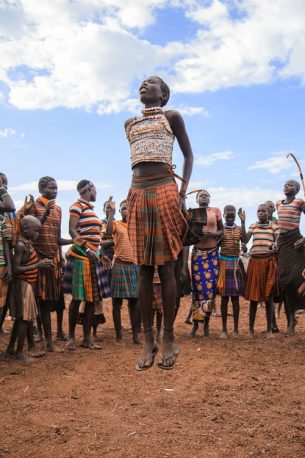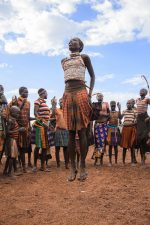Essential Tips for Traveling to Uganda
Visa Requirements: Check the visa requirements for your nationality before traveling to Uganda.
Vaccinations: Make sure you are up-to-date on vaccinations recommended for Uganda, including yellow fever.
Currency: The official currency is the Ugandan Shilling (UGX). Be prepared to use cash for most transactions.
Language: English is widely spoken and understood, but learning some basic phrases in Luganda or Swahili can be helpful.
Weather: Uganda has a tropical climate with two main seasons: wet and dry. Plan your trip accordingly.
Wildlife: Uganda is home to diverse wildlife, including mountain gorillas, chimpanzees, and the Big Five. Consider visiting national parks for wildlife safaris.
Gorilla Trekking: If you plan to go gorilla trekking, book permits well in advance as they are limited and in high demand.
Cultural Etiquette: Respect local customs and traditions, such as removing shoes before entering homes and greeting elders with respect.
Safety: Exercise caution in crowded areas and be mindful of your belongings, especially in tourist hotspots.
Health Precautions: Drink bottled or boiled water and use insect repellent to prevent mosquito-borne diseases like malaria.
Road Conditions: Roads in Uganda can be rough and unpredictable. Consider hiring a reliable driver or using public transportation.
Electricity: The standard voltage is 240 V, and the outlets are Type G. Bring a universal adapter if needed.
Internet and Communication: Internet access is available in major cities, but connection speeds may vary. Consider purchasing a local SIM card for data.
Food and Drink: Try local delicacies like matoke (cooked bananas) and rolex (chapati rolled with eggs). Be cautious of street food hygiene
Accommodation: Uganda offers a range of accommodation options, from budget hostels to luxury lodges. Book in advance during peak seasons.
National Parks: Explore Uganda's national parks, including Bwindi Impenetrable Forest, Queen Elizabeth, and Murchison Falls.
Cultural Experiences: Visit local markets, attend cultural performances, and interact with communities to learn about Uganda's rich heritage.
Shopping: Bargain when shopping in markets and expect to pay higher prices in tourist areas.
Tipping: Tipping is not mandatory but appreciated for good service, typically around 5-10% of the bill.
Photography: Respect people's privacy when taking photos and ask for permission before photographing individuals.
Conservation: Support sustainable tourism practices and avoid activities that harm wildlife or the environment.
Dress Code: Pack lightweight, modest clothing suitable for the tropical climate. Respectful attire is expected when visiting religious sites.
Time Zone: Uganda operates on East Africa Time (EAT), which is UTC+3




